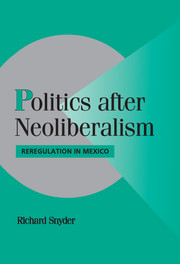1 - RETHINKING THE CONSEQUENCES OF NEOLIBERALISM
Published online by Cambridge University Press: 03 December 2009
Summary
The neoliberal wave has crested and broken. During the last two decades, virtually all developing countries shifted from state-led to market-oriented economic strategies. This global wave of policy reform, which affected the lives of literally billions of people across the developing world, stands as perhaps the most remarkable economic event of the late twentieth century.
In the wake of this policy revolution, an ideologically charged debate has raged about the consequences of neoliberal reforms. Proponents of neoliberalism herald the triumph of free markets over government control. They euphorically predict new levels of prosperity as market forces are liberated from the fetters of government intervention. By contrast, opponents of neoliberalism warn of developmental disaster. They argue that market-oriented reforms set countries on a pernicious “race to the bottom” as they compete to attract footloose global capital by lowering environmental and workplace standards.
This study aims to get beyond the apocalyptic rhetoric by analyzing fresh evidence about the effects of neoliberal policy reform. The evidence challenges a fundamental assumption shared by both friend and foe of these reforms, who converge in the belief that they result in laissez-faire markets. I find instead that neoliberal policies, rather than unleashing market forces, trigger the construction of new institutions for market governance.
By vacating institutionalized policy domains, neoliberal reforms create opportunities for political incumbents to expand their authority and their support bases by “reregulating” sectors of the economy. Organized societal groups have a stake in how markets are reregulated and can mobilize to support or challenge politicians' reregulation projects.
- Type
- Chapter
- Information
- Politics after NeoliberalismReregulation in Mexico, pp. 3 - 20Publisher: Cambridge University PressPrint publication year: 2001



